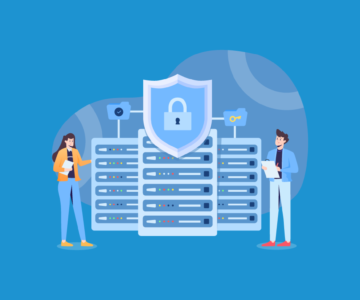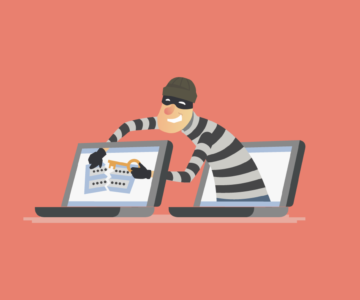There are three main reasons that a hacker would want to launch a brute force attack against your website regardless of what is on your website or what your business does. A brute force attack in when a hacker runs scripts on your website’s login portal to input thousands of educated username and password guesses. We go into more depth in our brute force blog post.
As a small business owner, your website helps you share the story of your company with potential customers. You may or may not do business outside of your city, region, or country. You may not use the website for anything more than a billboard to help clients find and call you.
Worrying about website security might seem like overkill. You may ask, “Why would they hack me? I conduct my business offline. I don’t collect credit card information or anything that they could use to get money. My website attracts customers and they call me and that’s it.”
In answer to this question, there are three reasons why a hacker would target your website.
- Because they can
- To install malware
- For SEO spam purposes
Because They Can
Although hackers who launch brute force attacks for the fun of it seem inconsequential, there are enough of them out there to cause serious issues. Some programmers and software engineering students get a thrill out of hacking websites.
Their fascination may be motivated by curiosity or they may be proving themselves among their peer group. They can earn this respect as a hacker regardless of what your website does or who your company is. Your small business’s hacked website will just be another notch in their belt to prove what they are capable of.
To Install Malware
In 2012, Key Web Concepts dealt with a virus on one our sites. This malware infected one of our websites using a Base64 code that self-propagated across multiple pages. As soon as one page was clean and free of malware, the virus would spread elsewhere and then back again. We eventually used our backups of the site along with some cleaning techniques to get an edge on the virus and restore the website.
Malware can also wreak havoc if it results in your website being blacklisted from Google. Blacklisting is how search engines prevent innocent web surfers from visiting malicious websites. This shuts down your web traffic until you clear off the malware leading to a potential loss in customers.
For SEO Spam
The third reason that hackers could target your sight is for SEO spam tactics. Part of encouraging a website to rank higher in Google search results is the use of backlinks. When more sites link to your site, search engines see that as an indication that you have authority as a worthwhile site.
But, while most sites encourage backlinks by creating worthwhile content, some sites desperately hack into your site as a black hat SEO tactic. If your website is doing well in search engine rankings and web traffic as you want it to do, hackers will target your site to secretly insert links to help their own website rank higher.
What Can You Do?
If your site has already been hacked, give us a call. It is possible that we can clean your site of malware and keep your online presence safe.
If you are worried about future attacks to your site, consider installing a security plugin on your website. Security plugins can do everything from hiding the login portal to banning suspicious IP address with too many failed login attempts. Some can even block countries where you don’t plan to do business so that only potential customers can view your site. These plugins gather data about hacks when they happen and update their program to block the latest threats.
For Key Web customers, our Pro website hosting package includes the installation of several security plugins to cover all of the bases. By continually monitoring your security, we will ensure that you win the ongoing battle of website security. We’ll catch compromises in your security early so it has less effect on your web traffic. Your website will stay safe.


